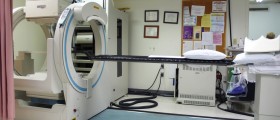
What exactly is mesothelioma?
Mesothelioma is a very rare type of malignant cancer that develops from mesothelium, which is a protective tissue of a number of internal organs. This cancer can be classified into several groups, depending on the part of mesothelium that is affected, but most frequently, it is related to pleura, abdomen or heart.
The symptoms and problems that a person will experience if diagnosed with this type of cancer also depend on the part of the body that is affected, but some of those typical of pleural mesothelioma are pain in the chest and under the rib cage, shortness of breath, coughing that is usually painful, and weigh loss without an apparent reason. Lumps may also appear under the skin. Besides pain and swelling, symptoms of other types of this cancer are not really clear.
What causes mesothelioma?
It is known that cancer occurs due to the genetic mutations in a cell that further begins to multiply enormously, but when it comes to mesothelioma, it has been identified that people who are at risk more than others are those who have been exposed to asbestos and radiation. Also, some researches indicate that there is some kind of connection between this disease and a virus used in polio vaccines.
As for asbestos, it is definitely the most frequent cause of mesothelioma in the United States, and in most of the cases of this cancer, there is a history of exposure to asbestos dust. It is possible that people who have been exposed to asbestos for a brief period but indirectly also develop this type of cancer, which only indicates that it cannot be determined what dose is dangerous, and to what level asbestos is safe.
Is it possible to cure mesothelioma?
Unfortunately, this kind of cancer cannot be cured, and the only thing that can be done for the patients suffering from it includes the treatment of the symptoms to a certain extent, in order to make their life a bit more easy and comfortable. There are medications that can help a little with that, there is even a surgery, radiation therapy and chemotherapy, but since this disease is usually diagnosed in an advanced stage, none of the treatment options offers the cure. Still, when it comes to types such as pericardial and tunica vaginalis, if they are detected at an early stage, sometimes they can be removed through the surgery.

















Your thoughts on this
Loading...